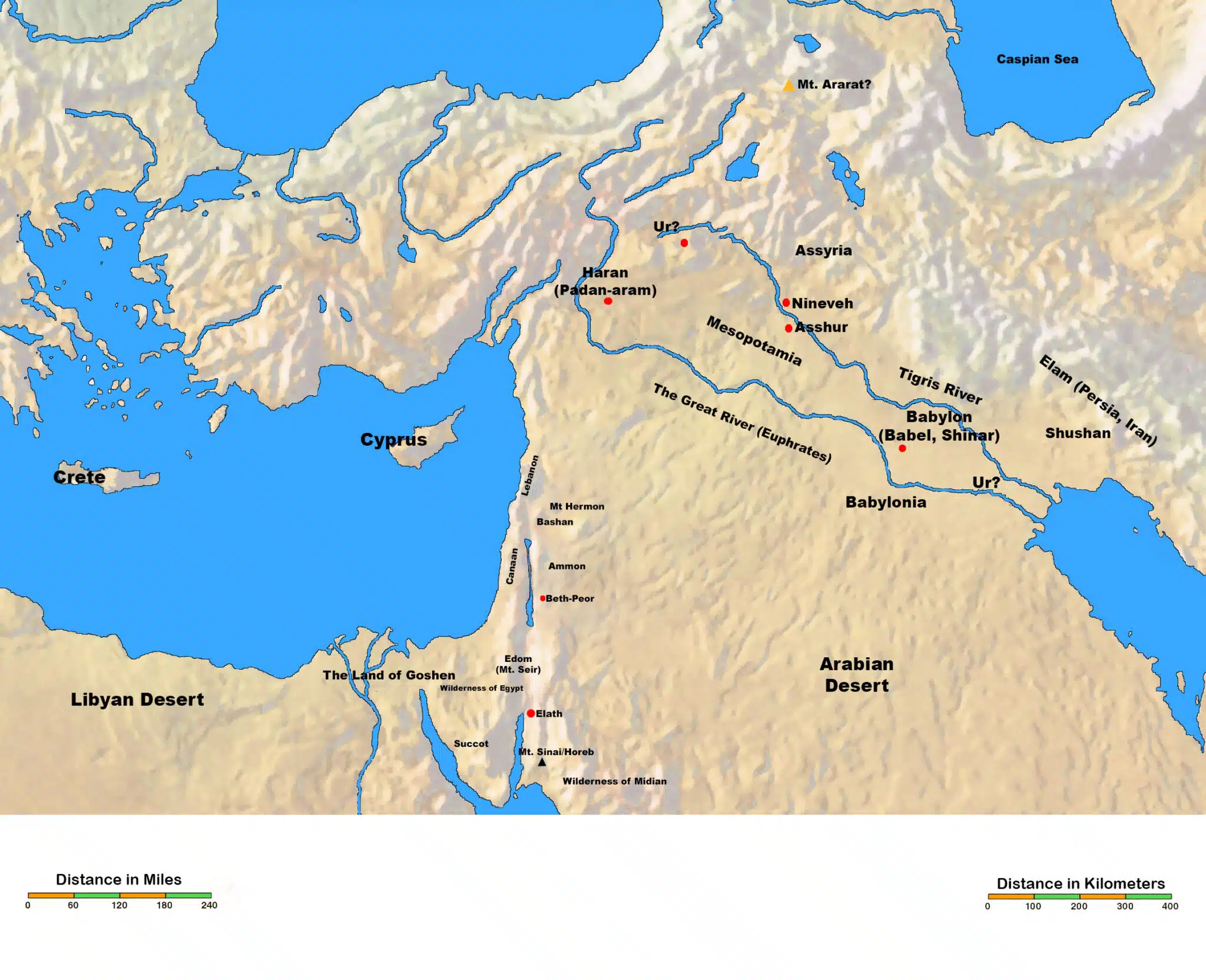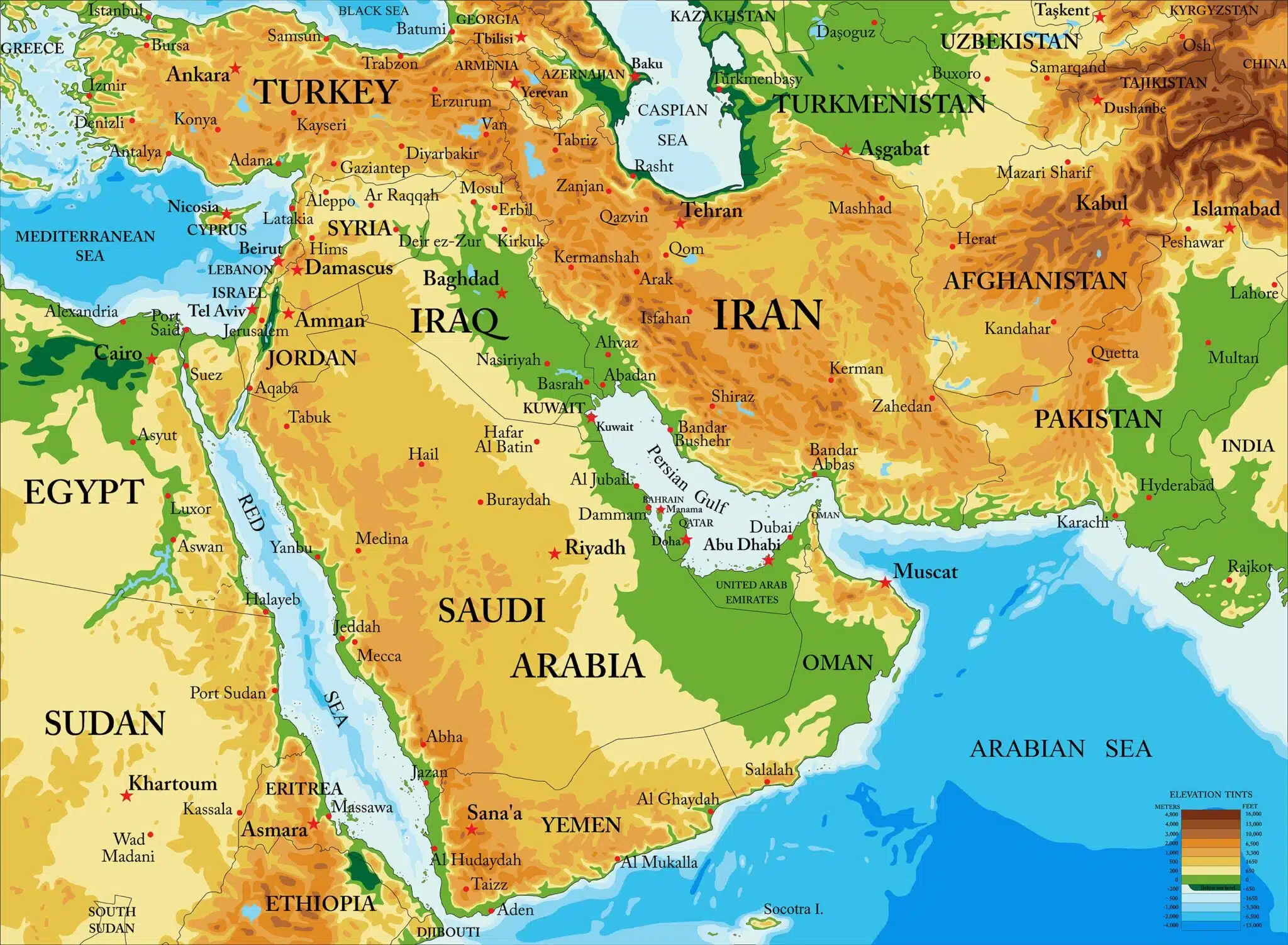Noah, his family, and all the animals left the ark. Noah built the first altar and offered sacrifices to the Lord. God was pleased with Noah and his sacrifices, and promises to never curse the ground again or destroy every living thing like He had done in this case.
After over a year on the ark, all the passengers now disembark. Noah went out, and his sons and his wife and his sons’ wives with him. All the animals also disembark, in all categories. Every beast including every creeping thing, and every bird, everything that moves on the earth. All these creatures went out by their families from the ark.
Noah then built an altar to the Lord and sacrificed some of the clean animals. God had commanded that seven pair of clean animals be taken on the ark (Genesis 7:2). So when Noah took of every clean animal and of every clean bird and offered burnt offering on the altar, he was offering 1/14th of all the clean animals then existing. This was therefore an incredibly lavish offering. Noah could easily have reasoned that the clean animals were far too precious to beginning life anew to offer as sacrifices. After all, the earth was now a hostile environment compared to what he had known. But Noah’s actions make it clear that he realized his hope was in God.
Although sacrifices in worship were known since the days of Cain and Abel, verse 20 is the first mention in the Bible of an altar being used for sacrifice. An altar is a raised structure used to offer a sacrifice. Noah’s first act after leaving the ark was an offering to worship God through a sacrifice. Noah commenced his new season of life with spiritual worship. A burnt offering is meant to go upward. As the sacrifice was consumed by the fire, the smell and aroma went upward to God bearing the gratitude and worship of the offerer.
This sacrifice represents Noah’s complete devotion to the Lord. The ascension of the smoke of the burnt offering went up to heaven, and the Lord smelled the soothing aroma. The LORD then said to Himself, “I will never again curse the ground on account of man, for the intent of man’s heart is evil from his youth; and I will never again destroy every living thing, as I have done. “While the earth remains, seedtime and harvest, and cold and heat, and summer and winter, and day and night shall not cease.”
The purpose of the flood had been achieved, it had stopped the violence of the pre-flood world. But the flood did not reverse the corruption of the human will and mind. Humankind was not fundamentally different than it was before the flood, there was still evil intent in man’s heart from his youth. We do not have to teach children to be selfish, to take toys from other children. Notwithstanding, God promised that the world would be a stable environment and produce a place where mankind could live and thrive. The human heart may be irregular, but God’s world would become regular in its cycles.
Through divine mercy, God promises in verses 21-22 to never again curse the ground on account of man. This promise does not remove the curse of Genesis 3:17. But God does promise not curse anew. God also promises not to destroy or strike down every living thing in this same way again. Mankind might produce again the wickedness described in Genesis 6:5, but God promises to never respond with this same kind of destruction.
Then, in verse 22, God makes a remarkable promise regarding the stability of the earth’s cosmological stability while the earth remains. We know that the earth will be destroyed by fire and remade into a new earth, with a new heaven (Rev 21:1; 2 Pet 3:7). But that destruction and remaking will be different. We are not told many details as to how they will differ. But one apparent difference is in the comparison between new and old. It seems that the earth after Noah is a vastly inferior environment in which to live, contrasting with the new earth that is to come, which will be a home for all creation that is vastly superior to the current earth.
The promise that day, night, harvesting and the seasons will continue while the earth remains has vast cosmological ramifications. As the ark was a place of safety and deliverance in the middle of a wicked world, the earth now becomes as sort of ark for humanity. God promises the seasons will continue. The seasons are caused by the very delicate balance of the earth’s tilt, and the very narrow window within which the earth revolves around the sun. One tiny shift would completely upset the seasons, or make the earth uninhabitable. Life on earth could not be more fragile in this respect. But we need not worry, because God is sustaining the seasons. This is something we should have the gratitude of Noah for, but we tend to take it for granted.
God also promises that day and night shall not cease. This means that God will see that the earth’s rotation remains stable. Once again, this is an amazing promise that brings stability to the earth, enabling it to be an “ark” that preserves humanity for this season of human history. As with the earth’s rotation around the sun and it’s tilt, if the earth’s spin were to alter materially, it likely would be calamitous for the human race. But God here promises that He will sustain the earth’s delicate balance until it is time for a new earth to be constructed.
Biblical Text
18 So Noah went out, and his sons and his wife and his sons’ wives with him. 19 Every beast, every creeping thing, and every bird, everything that moves on the earth, went out by their families from the ark. 20 Then Noah built an altar to the Lord, and took of every clean animal and of every clean bird and offered burnt offerings on the altar. 21 The Lord smelled the soothing aroma; and the Lord said to Himself, “I will never again curse the ground on account of man, for the intent of man’s heart is evil from his youth; and I will never again destroy every living thing, as I have done. 22 “While the earth remains, Seedtime and harvest, And cold and heat, And summer and winter, And day and night Shall not cease.”
Check out our other commentaries:
-
Daniel 2:14-16 meaning
Daniel seeks an audience with the king so that he might, with wisdom from God, interpret the dream...... -
Obadiah 1:5-7 meaning
The LORD will use foreign nations to pillage Edom’s resources and remove her from her land....... -
Matthew 6:9-15 meaning
Jesus teaches His disciples how to pray. They are to pray to their Father with all due honor, seeking to accomplish His will, acknowledging their...... -
Deuteronomy 13:6-11 meaning
Moses warns the people against listening to a close relative or a dear friend who may entice them secretly to serve other gods. He then...... -
Deuteronomy 18:1-8 meaning
Since the Levitical priests would minister before the LORD at the central sanctuary, they were not supposed to do any secular job. They were to......




